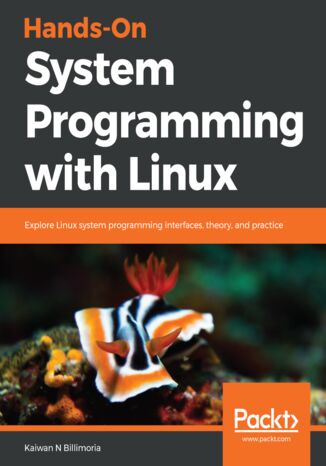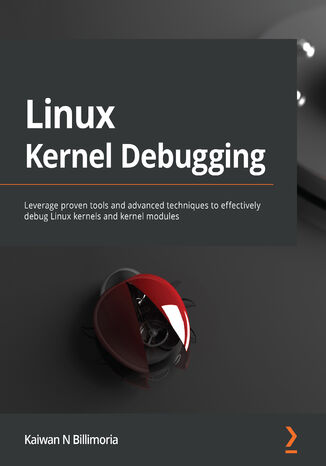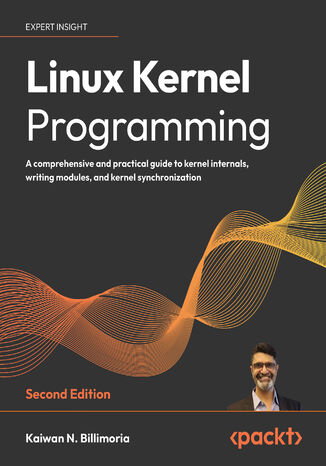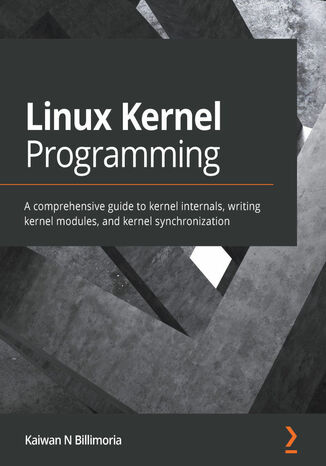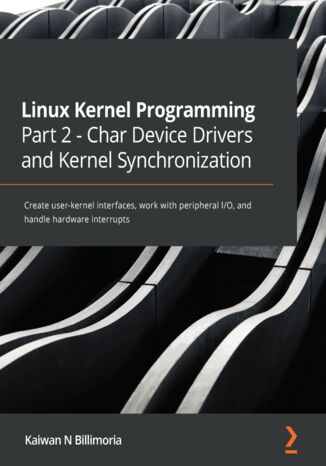Categories
-
- Bitcoin
- Businesswoman
- Coaching
- Controlling
- E-business
- Economy
- Finances
- Stocks and investments
- Personal competence
- Computer in the office
- Communication and negotiation
- Small company
- Marketing
- Motivation
- Multimedia trainings
- Real estate
- Persuasion and NLP
- Taxes
- Social policy
- Guides
- Presentations
- Leadership
- Public Relation
- Reports, analyses
- Secret
- Social Media
- Sales
- Start-up
- Your career
- Management
- Project management
- Human Resources
-
- Architektura i wnętrza
- Health and Safety
- Biznes i Ekonomia
- Home and garden
- E-business
- Ekonomia i finanse
- Esoterecism
- Finances
- Personal finance
- Business
- Photography
- Computer science
- HR & Payroll
- For women
- Computers, Excel
- Accounts
- Culture and literature
- Scientific and academic
- Environmental protection
- Opinion-forming
- Education
- Taxes
- Travelling
- Psychology
- Religion
- Agriculture
- Book and press market
- Transport and Spedition
- Healthand beauty
-
- Office applications
- Data bases
- Bioinformatics
- IT business
- CAD/CAM
- Digital Lifestyle
- DTP
- Electronics
- Digital photography
- Computer graphics
- Games
- Hacking
- Hardware
- IT w ekonomii
- Scientific software package
- School textbooks
- Computer basics
- Programming
- Mobile programming
- Internet servers
- Computer networks
- Start-up
- Operational systems
- Artificial intelligence
- Technology for children
- Webmastering
-
- Antology
- Ballade
- Biographies and autobiographies
- For adults
- Dramas
- Diaries, memoirs, letters
- Epic, epopee
- Essay
- Fantasy and science fiction
- Feuilletons
- Work of fiction
- Humour and satire
- Other
- Classical
- Crime fiction
- Non-fiction
- Fiction
- Mity i legendy
- Nobelists
- Novellas
- Moral
- Okultyzm i magia
- Short stories
- Memoirs
- Travelling
- Narrative poetry
- Poetry
- Politics
- Popular science
- Novel
- Historical novel
- Prose
- Adventure
- Journalism, publicism
- Reportage novels
- Romans i literatura obyczajowa
- Sensational
- Thriller, Horror
- Interviews and memoirs
-
- Archeology
- Bibliotekoznawstwo
- Cinema studies
- Philology
- Polish philology
- Philosophy
- Finanse i bankowość
- Geography
- Economy
- Trade. World economy
- History and archeology
- History of art and architecture
- Cultural studies
- Linguistics
- Literary studies
- Logistics
- Maths
- Medicine
- Humanities
- Pedagogy
- Educational aids
- Popular science
- Other
- Psychology
- Sociology
- Theatre studies
- Theology
- Economic theories and teachings
- Transport i spedycja
- Physical education
- Zarządzanie i marketing
-
- Health and Safety
- History
- Road Code. Driving license
- Law studies
- Healthcare
- General. Compendium of knowledge
- Academic textbooks
- Other
- Construction and local law
- Civil law
- Financial law
- Economic law
- Economic and trade law
- Criminal law
- Criminal law. Criminal offenses. Criminology
- International law
- International law
- Health care law
- Educational law
- Tax law
- Labor and social security law
- Public, constitutional and administrative law
- Family and Guardianship Code
- agricultural law
- Social law, labour law
- European Union law
- Industry
- Agricultural and environmental
- Dictionaries and encyclopedia
- Public procurement
- Management
-
- Africa
- Albums
- Southern America
- North and Central America
- Australia, New Zealand, Oceania
- Austria
- Asia
- Balkans
- Middle East
- Bulgary
- China
- Croatia
- The Czech Republic
- Denmark
- Egipt
- Estonia
- Europe
- France
- Mountains
- Greece
- Spain
- Holand
- Iceland
- Lithuania
- Latvia
- Mapy, Plany miast, Atlasy
- Mini travel guides
- Germany
- Norway
- Active travelling
- Poland
- Portugal
- Other
- Przewodniki po hotelach i restauracjach
- Russia
- Romania
- Slovakia
- Slovenia
- Switzerland
- Sweden
- World
- Turkey
- Ukraine
- Hungary
- Great Britain
- Italy
-
- Philosophy of life
- Kompetencje psychospołeczne
- Interpersonal communication
- Mindfulness
- General
- Persuasion and NLP
- Academic psychology
- Psychology of soul and mind
- Work psychology
- Relacje i związki
- Parenting and children psychology
- Problem solving
- Intellectual growth
- Secret
- Sexapeal
- Seduction
- Appearance and image
- Philosophy of life
-
- Bitcoin
- Businesswoman
- Coaching
- Controlling
- E-business
- Economy
- Finances
- Stocks and investments
- Personal competence
- Communication and negotiation
- Small company
- Marketing
- Motivation
- Real estate
- Persuasion and NLP
- Taxes
- Social policy
- Guides
- Presentations
- Leadership
- Public Relation
- Secret
- Social Media
- Sales
- Start-up
- Your career
- Management
- Project management
- Human Resources
-
- Antology
- Ballade
- Biographies and autobiographies
- For adults
- Dramas
- Diaries, memoirs, letters
- Epic, epopee
- Essay
- Fantasy and science fiction
- Feuilletons
- Work of fiction
- Humour and satire
- Other
- Classical
- Crime fiction
- Non-fiction
- Fiction
- Mity i legendy
- Nobelists
- Novellas
- Moral
- Okultyzm i magia
- Short stories
- Memoirs
- Travelling
- Poetry
- Politics
- Popular science
- Novel
- Historical novel
- Prose
- Adventure
- Journalism, publicism
- Reportage novels
- Romans i literatura obyczajowa
- Sensational
- Thriller, Horror
- Interviews and memoirs
-
- Philosophy of life
- Interpersonal communication
- Mindfulness
- General
- Persuasion and NLP
- Academic psychology
- Psychology of soul and mind
- Work psychology
- Relacje i związki
- Parenting and children psychology
- Problem solving
- Intellectual growth
- Secret
- Sexapeal
- Seduction
- Appearance and image
- Philosophy of life
The Linux OS and its embedded and server applications are critical components of today’s software infrastructure in a decentralized, networked universe. The industry's demand for proficient Linux developers is only rising with time. Hands-On System Programming with Linux gives you a solid theoretical base and practical industry-relevant descriptions, and covers the Linux system programming domain. It delves into the art and science of Linux application programming— system architecture, process memory and management, signaling, timers, pthreads, and file IO.This book goes beyond the use API X to do Y approach; it explains the concepts and theories required to understand programming interfaces and design decisions, the tradeoffs made by experienced developers when using them, and the rationale behind them. Troubleshooting tips and techniques are included in the concluding chapter.By the end of this book, you will have gained essential conceptual design knowledge and hands-on experience working with Linux system programming interfaces.
The Linux kernel is at the very core of arguably the world’s best production-quality OS. Debugging it, though, can be a complex endeavor.Linux Kernel Debugging is a comprehensive guide to learning all about advanced kernel debugging. This book covers many areas in-depth, such as instrumentation-based debugging techniques (printk and the dynamic debug framework), and shows you how to use Kprobes. Memory-related bugs tend to be a nightmare – two chapters are packed with tools and techniques devoted to debugging them. When the kernel gifts you an Oops, how exactly do you interpret it to be able to debug the underlying issue? We’ve got you covered. Concurrency tends to be an inherently complex topic, so a chapter on lock debugging will help you to learn precisely what data races are, including using KCSAN to detect them. Some thorny issues, both debug- and performance-wise, require detailed kernel-level tracing; you’ll learn to wield the impressive power of Ftrace and its frontends. You’ll also discover how to handle kernel lockups, hangs, and the dreaded kernel panic, as well as leverage the venerable GDB tool within the kernel (KGDB), along with much more.By the end of this book, you will have at your disposal a wide range of powerful kernel debugging tools and techniques, along with a keen sense of when to use which.
The 2nd Edition of Linux Kernel Programming is an updated, comprehensive guide for those new to Linux kernel development. Built around the latest 6.1 Long-Term Support (LTS) Linux kernel, which is maintained until December 2026, this edition explores its key features and enhancements. Additionally, with the Civil Infrastructure Project extending support for the 6.1 Super LTS (SLTS) kernel until August 2033, this book will remain relevant for years to come.You'll begin this exciting journey by learning how to build the kernel from source. Step by step, you will then learn how to write your first kernel module by leveraging the kernel's powerful Loadable Kernel Module (LKM) framework. With this foundation, you will delve into key kernel internals topics including Linux kernel architecture, memory management, and CPU (task) scheduling. You'll finish with understanding the deep issues of concurrency, and gain insight into how they can be addressed with various synchronization/locking technologies (for example, mutexes, spinlocks, atomic/refcount operators, rw-spinlocks and even lock-free technologies such as per-CPU and RCU).By the end of this book, you'll build a strong understanding of the fundamentals to writing the Linux kernel and kernel module code that can straight away be used in real-world projects and products.
Linux Kernel Programming is a comprehensive introduction for those new to Linux kernel and module development. This easy-to-follow guide will have you up and running with writing kernel code in next-to-no time. This book uses the latest 5.4 Long-Term Support (LTS) Linux kernel, which will be maintained from November 2019 through to December 2025. By working with the 5.4 LTS kernel throughout the book, you can be confident that your knowledge will continue to be valid for years to come.You’ll start the journey by learning how to build the kernel from the source. Next, you’ll write your first kernel module using the powerful Loadable Kernel Module (LKM) framework. The following chapters will cover key kernel internals topics including Linux kernel architecture, memory management, and CPU scheduling. During the course of this book, you’ll delve into the fairly complex topic of concurrency within the kernel, understand the issues it can cause, and learn how they can be addressed with various locking technologies (mutexes, spinlocks, atomic, and refcount operators). You’ll also benefit from more advanced material on cache effects, a primer on lock-free techniques within the kernel, deadlock avoidance (with lockdep), and kernel lock debugging techniques.By the end of this kernel book, you’ll have a detailed understanding of the fundamentals of writing Linux kernel module code for real-world projects and products.
Linux Kernel Programming Part 2 - Char Device Drivers and Kernel Synchronization is an ideal companion guide to the Linux Kernel Programming book. This book provides a comprehensive introduction for those new to Linux device driver development and will have you up and running with writing misc class character device driver code (on the 5.4 LTS Linux kernel) in next to no time.You'll begin by learning how to write a simple and complete misc class character driver before interfacing your driver with user-mode processes via procfs, sysfs, debugfs, netlink sockets, and ioctl. You'll then find out how to work with hardware I/O memory. The book covers working with hardware interrupts in depth and helps you understand interrupt request (IRQ) allocation, threaded IRQ handlers, tasklets, and softirqs. You'll also explore the practical usage of useful kernel mechanisms, setting up delays, timers, kernel threads, and workqueues. Finally, you'll discover how to deal with the complexity of kernel synchronization with locking technologies (mutexes, spinlocks, and atomic/refcount operators), including more advanced topics such as cache effects, a primer on lock-free techniques, deadlock avoidance (with lockdep), and kernel lock debugging techniques.By the end of this Linux kernel book, you'll have learned the fundamentals of writing Linux character device driver code for real-world projects and products.

